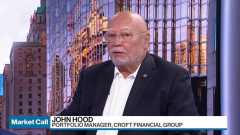Jun 17, 2024
Maimed Ukrainian Power System May Get More European Bank Support
, Bloomberg News
(Bloomberg) -- The European Bank for Reconstruction and Development is studying increased support to help Ukraine overcome a critical shortage of electricity as a third winter in wartime approaches.
Russian attacks have destroyed 80% of coal-fired power output and a third of hydro generation, forcing Ukraine to impose sweeping blackouts for households and businesses. The central bank has cut borrowing costs three times and lowered the growth outlook in part because of attacks on energy plants.
The EBRD this month earmarked €300 million ($321 million) to help state-owned energy companies repair damaged facilities and build new decentralized generation capacity. The funding may yet increase, according to the London-based lender’s president.
“It is sort of a beginning, a starting point, it can be higher,” Odile Renaud-Basso said in an interview in Kyiv. “We are exploring how we can provide support and develop the electricity generation system,” with private companies also being able to qualify for funding.
The EBRD will continue its support of €1.5 billion to €2 billion a year for infrastructure, energy security, recovery and modernization, she said. After Russia moved away from primarily attacking energy networks to destroying electricity plants, “businesses need to get more diversified in supplies,” Renaud-Basso said.
Economic risks may be compounded by a mobilization campaign to help repulse the Kremlin’s invasion. The drive to send more soldiers to the front must be “defined precisely” to protect output, the lender’s chief said during a visit to the capital for talks with Ukraine’s government.
Compulsory recruitment to the army accelerated in May under a new law to replenish military ranks with hundreds of thousands of troops. That’s worsening a labor shortage that arose after millions fled Russia’s advance and took refuge in other countries across Europe.
“Keeping the economy going is very important, as you need to have tax revenues, electricity, public transportation and have staff able to do that,” Renaud-Basso said. “You need to balance all this.”
Likewise, keeping an International Monetary Fund program “will be very important,” and the authorities will have to implement anti-corruption reforms under an agreement to unseal further support beyond a $2.2 billion installment of a loan to help cover the budget.
For now, the outlook for Ukraine’s financing through the end of this year is stable, as overseas partners will likely fulfill their commitments to support the country, Renaud-Basso said.
“But 2025, especially the winter, will be challenging,” she said. “More clarity is needed on how to cover the financial gap.”
©2024 Bloomberg L.P.






